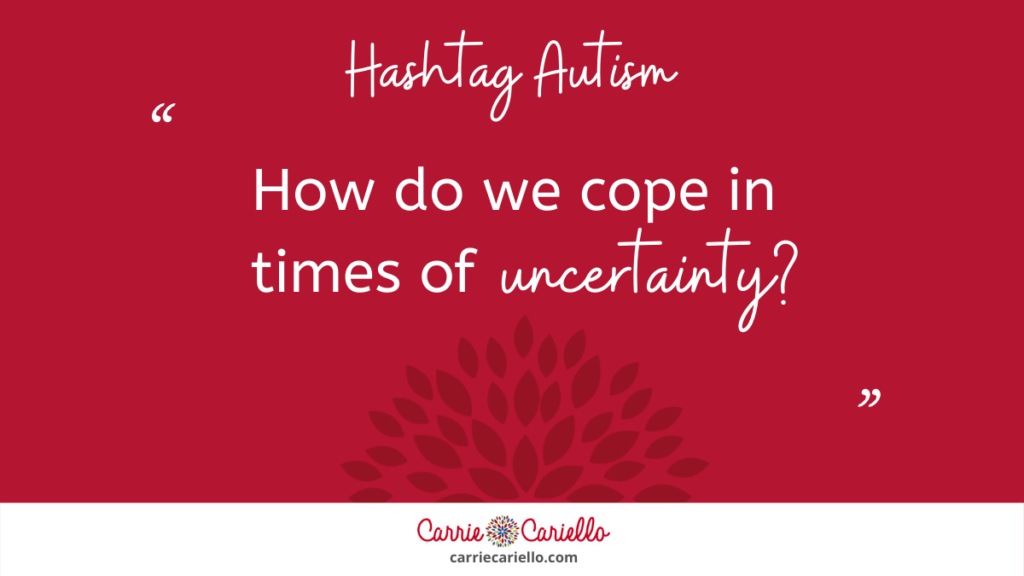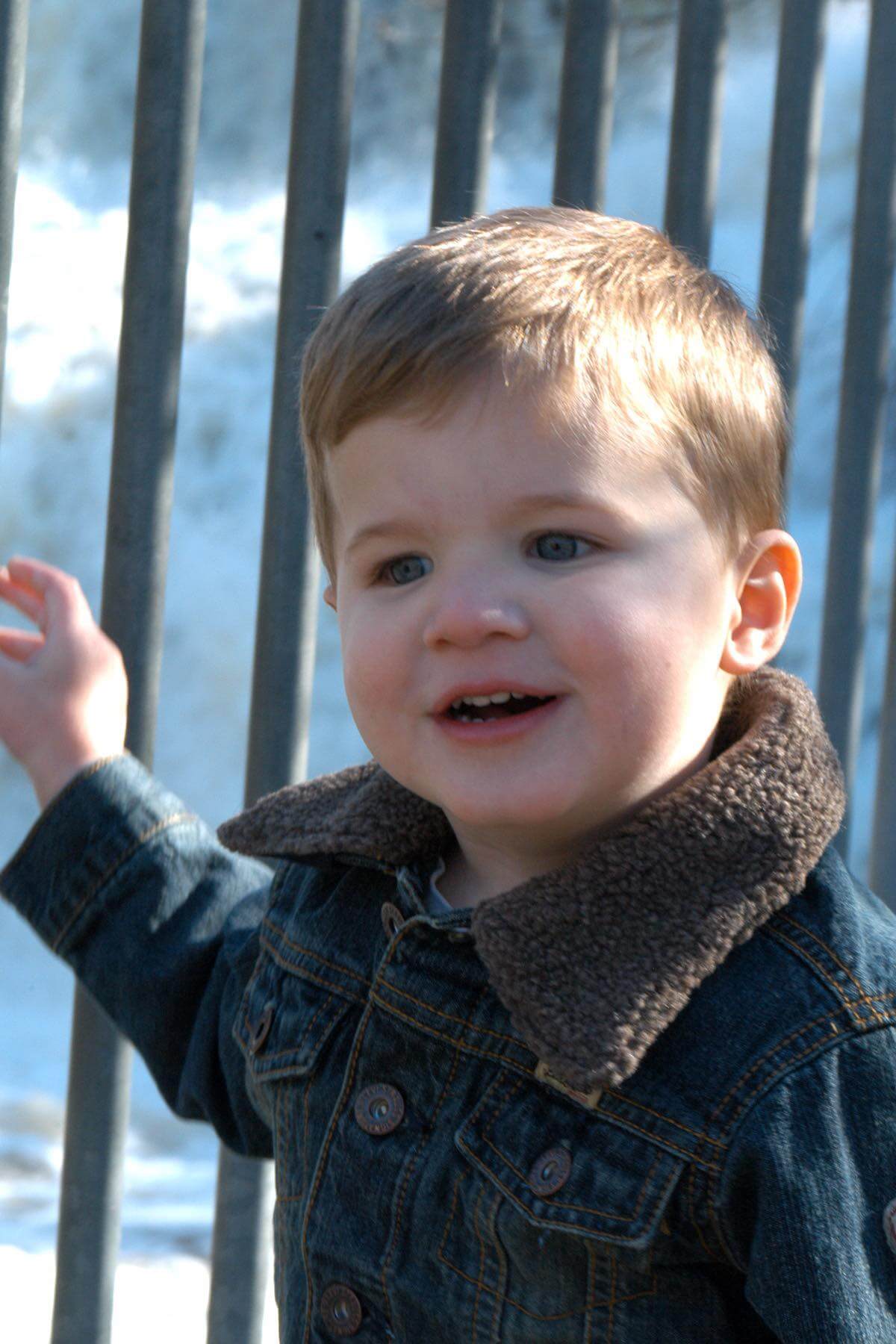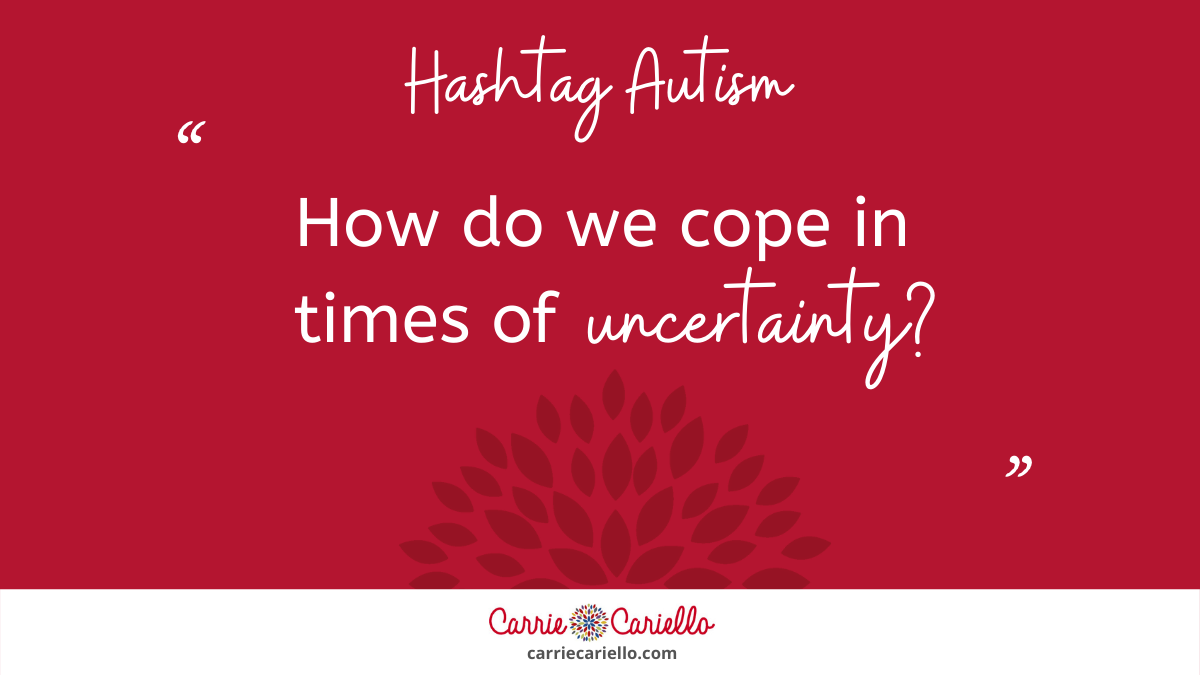How Does He Feel Loved?

This morning I listened to a radio show, where a doctor explained that in times of isolation and fear, we need to feel loved in order to feel safe.
He went on to say that something called oxytocin is our happiness hormone, and when it is released throughout our body, we feel a surge of positive emotion, or love.
He said the most effective way to release oxytocin is to bond socially. In times of social distancing, it’s important that we each make eye contact, and experience touch.
Hi.
My name is Carrie.
I have five kids.
My second son has autism. His name is Jack. He is fifteen.
Jack hates to be touched.
He doesn’t make eye contact.
I am not sure I have ever seen him, uh, bond socially.
Every since he was an infant, he squirmed from a lot of physical sensation. In other words, he hated to be snuggled, or held close, or kissed.
It’s a little better now, but still he treats things like hugging and hand-shaking as a customary social obligation. He doesn’t enjoy it. He rarely volunteers without prompting.
And eye contact, well, that’s another story. We’ve been demanding he look into our eyes since he was a toddler. He does it when he’s reminded, but it’s not a natural expression for him.

So the question becomes, how does my son feel loved?
I guess first, I need to start with what makes him feel safe.
Schedule.
Routine.
Anti-anxiety medication.
The right number of pillows at bedtime.
The new Dr. Pepper Cream Soda combination he saw at Target a few days before we all retreated into our homes.
But do these things translate into love?
I mean, I tell him I love him a hundred times a day. He hears it, but does he take it in? What does it mean to him?
Jack is fifteen, but emotionally he lands closer to a fourth grader. He doesn’t understand concepts like pandemic, or restaurants closing, or a shortage of supplies.
He knows his schedule is disrupted.
He knows we can’t get out for his favorite soda just now.
He does not feel safe.
He is anxious and deregulated and asking me about Easter forty million times a day.
He is not happy.
And as much as I long to, I can’t soothe him the way I soothe my other children. I can’t fold him into a big embrace or smooth down the cowlick in his hair. I can’t sit quietly and have a meaningful conversation about remote learning or social distancing or why we’re all monitoring the progress in China, and Italy.
Maybe the doctor was only partly right, about the oxytocin. Maybe most of us experience it from holding hands, or catching one another’s eye as we pass in the hallway. But maybe there are other ways, too.
Maybe Jack experiences it when he curls up into a bed full of soft pillows.
Or when I reassure him I will do everything I can to make sure his medication is refilled.
Or when he understands the routine—even a new routine, where we wake up and get ready for school in our very own house.
Today, I choose to believe this, because these are the things I can do for him.
I can drop the traditional way of thinking when it comes to easing his mind, and rely on his cues for feeling loved, and safe, and happy.
I can respect who he is, and the autism he has.

Written by, Carrie Cariello
Carrie Cariello is the author of What Color Is Monday, How Autism Changed One Family for the Better, and Someone I’m With Has Autism. She lives in Southern New Hampshire with her husband, Joe, and their five children.
Carrie is a contributor to the Huffington Post, TODAY Parents, the TODAY Show, Parents.com. She has been interviewed by NBC Nightly News, and also has a TEDx talk.
She speaks regularly about autism, marriage, and motherhood, and writes a weekly blog at www.carriecariello.com. One of her essays, “I Know What Causes Autism,” was featured as one of the Huffington Post’s best of 2015, and her piece, “I Know Why He Has Autism,” was named one of the top blog posts of 2017 by the TODAY Show.
Interested in writing for Finding Cooper’s Voice? LEARN MORE
Finding Cooper’s Voice is a safe, humorous, caring and honest place where you can celebrate the unique challenges of parenting a special needs child. Because you’re never alone in the struggles you face. And once you find your people, your allies, your village….all the challenges and struggles will seem just a little bit easier. Welcome to our journey. You can also follow us on Facebook, subscribe for exclusive videos, and subscribe to our newsletter.

